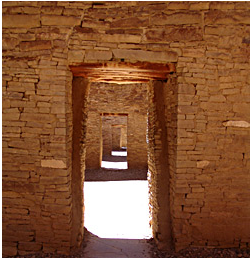Publication Date
7-30-2019
Abstract
This study looks at articulations, performances and translations of ethnicity among urban Lakota Christians at St. Matthew’s and St. Isaac Jogues in Rapid City, South Dakota. Within the context of increased ethnic revitalization and recognition, Native American Christians are negotiating new models of ethnicity in typically Western arenas, often manifesting through actions and discourse that are ostensibly traditional. Yet even in this era of recognition, the public performance of cultural authenticity is not the only thing on people’s minds. Native people mark various practices, symbols, and persons as traditional or modern at different points in history or within different contexts (see Bucko 1998); suggesting that individual expressions of ethnicity are both processual and event- dependent (see Agha 2007:165, 177, 255-256, 268). Thus, looking at Lakota Christians’ discourse and performance in congregational life, interpersonal interactions, and personal reflections illuminate many of the ways in which individuals and various subgroups (families, denominations, etc.) signal their ethnicities within the Church, and across time. This study reveals that ethnic expression in congregational life is demonstrated through specifically situated representations of difference rather than universalized or fixed categories of indigeneity, even in this era of ethnic recognition.
Keywords
semiotic ideology, religion, culture, anthropology, ethnicity, urban anthropology, indigeneity, communication, linguistic anthropology
Document Type
Dissertation
Language
English
Degree Name
Ethnology
Level of Degree
Doctoral
Department Name
Anthropology
First Committee Member (Chair)
David W. Dinwoodie
Second Committee Member
Suzanne R. Oakdale
Third Committee Member
Louise A. Lamphere
Fourth Committee Member
Raymond Bucko
Recommended Citation
Fitzgerald, Kristin A.. "“We Practice Lakota Way, but We Are Not an Indian Church”: The Diverse Ways Lakota Christians Articulate, Perform and Translate Ethnicity in Congregational Life." (2019). https://digitalrepository.unm.edu/anth_etds/173

